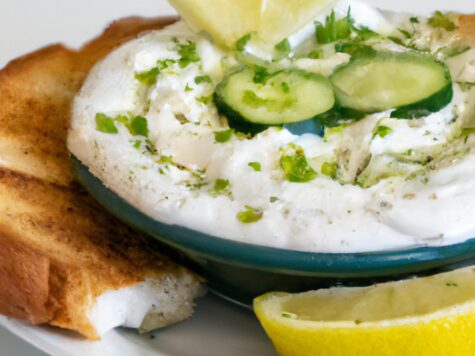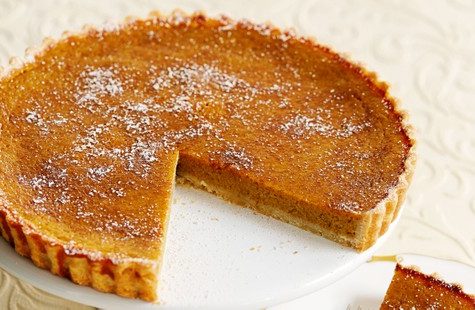What is salt?
Salt is a mineral composed primarily of sodium chloride, and is one of the simplest, most important ingredients on the planet. However, as the consumption of processed foods has increased so has our salt intake, which has implications for health.
Discover our full range of health benefit guides and read more about low-salt diets and explore our low-salt recipe collection.
What’s the problem with salt?
Although over the last decade we’ve worked hard at reducing our salt intake, the average UK adult is still eating a third more than the recommended amount of 6g per day (and less for children). That’s about one teaspoon per day.
The problem with this is that consuming too much salt may lead to hypertension, more commonly referred to as high blood pressure, which is a major cause of stroke and heart disease. We all know friends who load salt on everything with seemingly no adverse effects, but researchers have discovered that for a number of us, salt may be a major factor leading to high blood pressure. That’s because some of us are genetically more susceptible to the effects of salt in our diets.
So why is this important? Well, high blood pressure makes the heart work harder, this creates extra force in the arteries which may damage them as well as organs such as the heart, kidneys, brain and eyes. Most people don’t even know they have high blood pressure but it affects about a third of all UK adults.
How much salt should I eat per day?
While your salt requirement can vary depending on factors such as exercise, environment and whether you eat a lot of processed or homemade meals, the general recommendation is that adults consume no more than 6g salt (2.4g sodium) per day – about 1 teaspoon.
How can I tell how much salt is in a packaged food?
From December 2014 all food labels are required to list salt – this makes it easier for us to understand how much salt is in a product – previously salt was often labelled as sodium.
Check the label – where salt (g) per 100g is:
- More than 1.5g the product is HIGH in salt
- Between 1.5-0.3g the product is MEDIUM in salt
- Equal to or less than 0.3g the product is LOW in salt
How do I go about reducing my salt intake?
Its best to reduce the amount of salt in your diet progressively so you learn to live with less. Here are some steps you can take to help moderate your intake:
- Omit salt when you are preparing food and always taste before you season a dish
- Try flavouring foods with pepper, garlic, herbs, spices and lemon juice
- Learn to enjoy the flavours of unsalted food – you will find that within a few weeks your taste buds adapt.
- Try low salt substitutes
- Read food labels carefully to determine the amounts of salt and learn to recognise ingredients that contain sodium e.g. soy sauce, brine, mono sodium glutamate, baking soda.
- Look for words that suggest a high salt content such as barbecued, marinated, pickled and smoked.
- Cut down on processed foods that contain ‘high’ amounts.
What are reduced salt alternatives?
These products must, by law, contain 30% less salt than the standard product, this means they are not salt (sodium) free. Furthermore, because these alternatives still taste salty, they don’t help you adapt your palate to less salty flavours.
Is a low salt diet safe for everyone?
Sodium is an important electrolyte and plays a key role in the body, helping to maintain fluid levels and blood volume and facilitate nerve and muscle signalling.
Low levels of sodium may lead to a condition called hyponatremia, symptoms of which are similar to dehydration and include headaches, seizures, coma and even death. Older adults, especially those on medication, as well as athletes who take on a lot of hydration, are at greater risk of this condition.
For this reason, if you have a medical condition which requires a low-salt diet, or your GP or dietitian has advised you to limit your intake, you should continue to do so. However, if you are a healthy individual who has not been diagnosed with high blood pressure and cooks largely from scratch with minimal consumption of packaged or processed foods, then you may not need to adjust your current salt intake. If you are unsure you should refer to your GP for guidance.
More like this
If you are considering any significant changes to your diet, please consult your GP to ensure you can do so without risk to health. This is especially relevant if you are on medication, including those to manage blood pressure.
Do you follow a low-salt diet? Share your experiences and any tips in the comments below…
Kerry Torrens BSc. (Hons) PgCert MBANT is a Registered Nutritionist with a post graduate diploma in Personalised Nutrition & Nutritional Therapy. She is a member of the British Association for Nutrition and Lifestyle Medicine (BANT) and a member of the Guild of Food Writers. Over the last 15 years she has been a contributing author to a number of nutritional and cookery publications including BBC Good Food. Find her on Instagram at @kerry_torrens_nutrition_
Jo Lewin is a registered nutritionist (RNutr) with the Association for Nutrition with a specialism in public health. Follow her on Twitter @nutri_jo.
All health content on bbcgoodfood.com is provided for general information only, and should not be treated as a substitute for the medical advice of your own doctor or any other health care professional. If you have any concerns about your general health, you should contact your local health care provider. See our website terms and conditions for more information.




